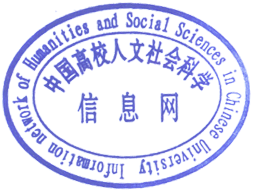关 键 词 :成都方言;亲属称谓语;文化内涵学科分类:语言学--汉语研究
汉语中亲属称谓语是依据血缘和婚姻关系建立的一套专门的称谓名称,兼具语言与文化双重特性。首先,它在语音、构词方式和语义内涵等方面反映了语言本身的特质。此外,作为文化的标志性符号,亲属称谓语也体现了特定地区的独特文化内涵。值得注意的是,不同地区的方言在亲属称谓语方面存在差异,这不仅揭示了人们对客观事物的不同认知,还深刻反映了各地不同的地域人文风貌。本文以成都方言的称谓语为研究对象,特别关注其亲属称谓语部分。通过深入研究成都方言中的亲属称谓语的语音、词汇和语用等方面,我们可以更深入地理解当地的习俗、民风以及隐含的价值观念等文化内涵。这一研究不仅有助于语言学的发展,还有助于对地方文化的保护与传承。
Chinese kinship terms are a set of specialized appellations based on blood and marriage relationships, with both linguistic and cultural characteristics.Firstly, it reflects the characteristics of language itself in terms of pronunciation, word formation, and semantic connotation.In addition, as a symbolic symbol of culture, kinship terms also embody the unique cultural connotations of a specific region.It is noteworthy that there are differences in the dialects of different regions in terms of kinship terms, which not only reveals people's different perceptions of objective things, but also deeply reflects the different regional humanistic styles of different places.This article focuses on the appellation language of Chengdu dialect, with a particular emphasis on its kinship terms.By conducting in-depth research on the phonetic, lexical, and pragmatic aspects of kinship terms in the Chengdu dialect, we can gain a deeper understanding of local customs, folkways, and cultural connotations such as implicit values.This research not only contributes to the development of linguistics, but also helps to protect and inherit local culture.

